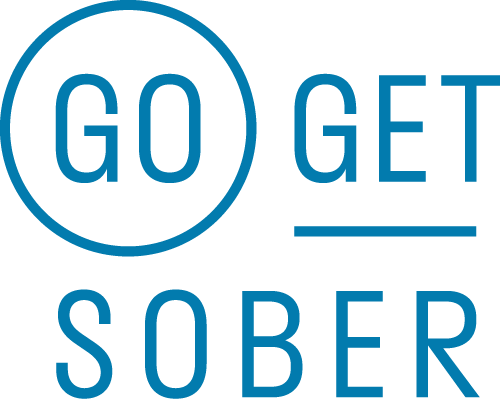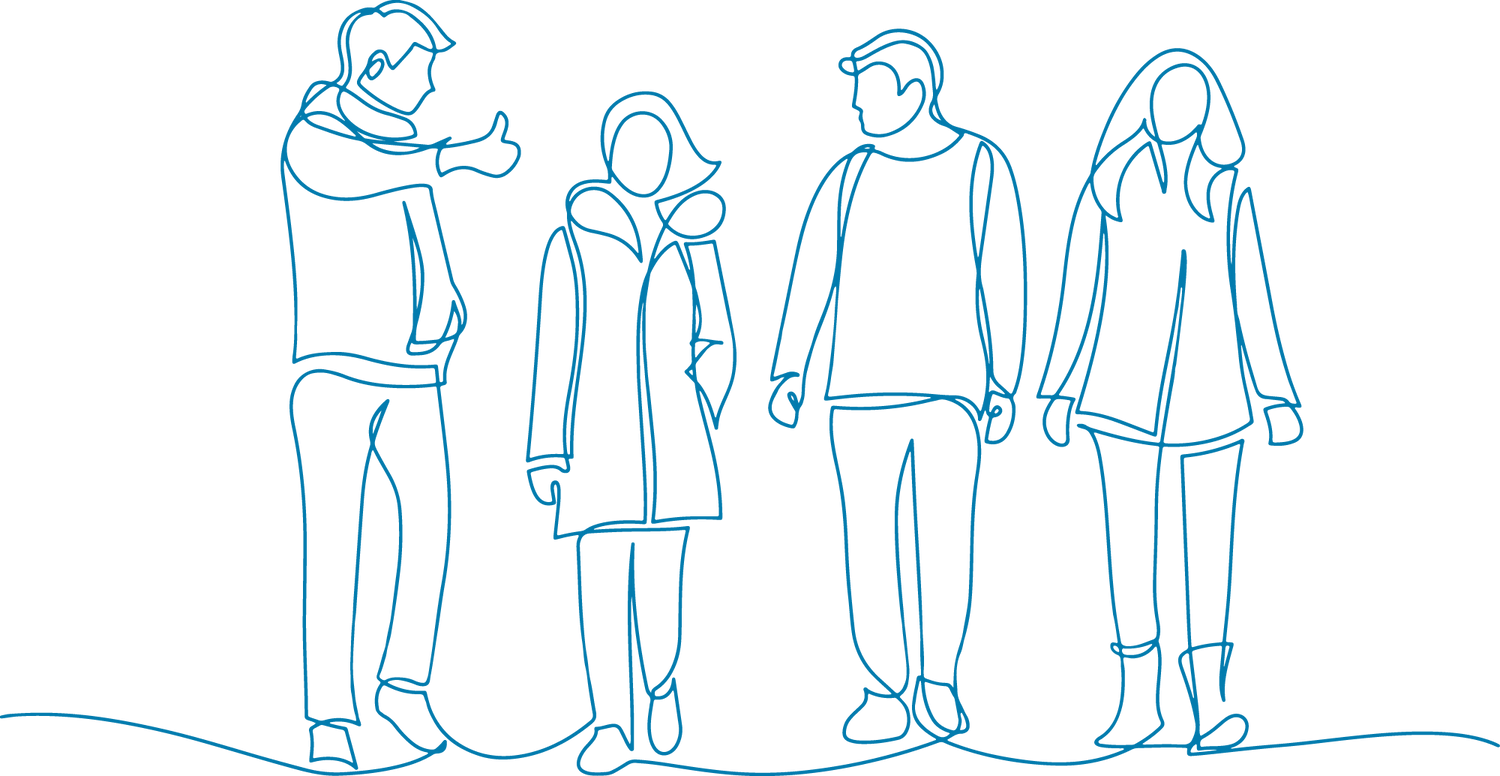I was someone who used to rely on alcohol to help me relax and to feel confident enough to enjoy socialising.
This blog is about my experience of socialising sober and I also share three tips on how you can do it too.
I’ve just spent the last week going out and about with friends, family and complete strangers. I’ve visited historic buildings, bars, and restaurants – I’ve done mountain walks, treasure hunts and kayaking across lakes. I’ve done all of this with a smile on my face, laughter in my ears and excitement in my belly. I've done all of this with a clear head.
I’ve done all of this completely sober.
In my drinking days, a trip to a historic building, museum or gallery would not have been complete without a drink at the end of it (and the drink at the end of it would have been the main event, with the trip just a hurdle to get over on the way). Any visit to a bar, café or restaurant with friends or family – and especially with strangers – would have involved drinking to get drunk so that I could feel relaxed, comfortable and confident. Any exciting activities like walks and kayaking adventures would have been accompanied by some anxiety or panic and always with a focus on enjoying some “well-deserved” and celebratory drinks afterwards to help me unwind and get over the anxiety – that would be when the real “fun” would begin.
What I couldn’t do when I was drinking, and even when I first stopped drinking, was imagine myself naturally and comfortably enjoying all these things without alcohol.
I used to look at other people who could socialise and do fun stuff sober and would think they belonged to a different species – that that just wasn’t possible for me. I used to feel angry and frustrated sometimes that I couldn’t just be like them and enjoy social events sober. I imagined that if I was doing all these activities sober, they would be boring, hard work and dull. I imagined that I would be really poor company. On some level, I imagined that, without alcohol, the real me just wouldn’t be good enough, entertaining enough or interesting enough.
If you can relate to any of this, the good news is it’s all rubbish.
You can do all these things sober and have a good time doing it.
I have had a great week socialising and enjoying conversations with lots of different people. I have even stepped right outside of my comfort zone and gone to a meal with some friends of mine and their family (who I’d never met before). In the past, I would have been terrified of this situation without alcohol to help me feel comfortable. Meeting large groups of new people would have filled me with dread. In the now, I don’t even think about alcohol, I just get on with it and find myself relaxing and enjoying the conversations naturally.
If this is possible for me, then it’s possible for you too.
Yes, at first you need to practise doing these activities sober. You need to practise new habits. You need to plan and rehearse what you’re going to do differently every time you go into a situation that used to involve alcohol. You might even need to avoid certain situations until you grow in confidence. But, as time passes, and you begin to accept and then revel in your new-found sobriety, you find yourself doing all the things you couldn’t imagine yourself doing sober. It does involve stepping outside of your comfort zone. But every time you step outside of your comfort zone, your comfort zone gets bigger and you grow in confidence.
I felt slightly nervous and tense at the beginning of the recent meal out with my friends and their family, but an hour into the evening, I was enjoying some great conversation with the nieces and nephews around the table round the table and we were all having a laugh. I was completely caught up in that teenage energy and had even begun to adapt my language and tone to match theirs - I felt younger by about three decades! By the end of the evening, despite the lateness, I didn’t want it to end. I drove home in the dark, smiling to myself and replaying the conversations and laughs in my head. It was great to be able to treasure a simple and authentic connection with a brand new group of people.
Feeling slightly nervous for an hour at the beginning of the evening is way better than going through the hell that used to be my hangovers (with all the accompanying guilt, shame and anxiety they brought me).
Socialising sober just gets better and better the more you do it. And, eventually, you don’t give it any thought at all. The concept of drinking or not drinking doesn’t enter your head – staying sober has become automatic and you’re simply enjoying the company.
Three Tips on How to Socialise Without Alcohol
1. Take the Pressure Off
When you first stop drinking, some situations might be too much for you. You want to make life as easy on yourself as possible so give yourself permission to stay away from from social situations that you're not ready for yet.
Even when you start going to the events that you do feel ready for, make sure you're limiting the amount of time that you spend there. Doing half an hour sober at a party or barbecue is much easier than a whole evening. You can feel way more confident by choosing in advance how much time you're going to spend there and leaving early enough that you stay in control.
Set yourself up for success by taking the pressure off:
- say no to the events that are too challenging for you
- give yourself a manageable time limit at the events you do want to go to
Remember, you always have the right to choose to do what's right for you. What other people want or expect of you is less important than you meeting your own needs right now.
2. Plan and Prepare
Preparing in advance of a social situation is really important. Most people who slip up and reach for alcohol when they're trying hard to stay sober do so because they've been taken unawares and their automatic programming and habits have kicked in.
By preparing some simple things in advance, you can make the whole situation much easier, you end up feeling more confident, and you're less likely to be taken by surprise:
- plan what you're going to drink instead of alcohol (take your own drink if necessary)
- plan what you're going to say when/if people offer you a drink
- plan what you're going to say when/if you feel under pressure to drink
- plan what you're going to say when/if people ask you why you're not drinking
- plan an escape route and a reason for leaving early
- practise what you're going to say out loud in front of a mirror until it feels natural and confident
- mentally rehearse (imagine) yourself in the situation, with all of the challenges it presents and imagine yourself dealing with all of these challenges effortlessly and confidently
- make a list of all of the benefits to you of coming home after the event having stayed successfully sober
3. Practise
If you have an unhealthy relationship with alcohol, you have trained your body and mind to want to reach for a drink as a response to a variety of "triggers".
A trigger can be a time of day, a feeling, the weather, a person, stress, tiredness, boredom, joy, an event, a place... all sorts of things can be triggers to drink.
Some of us have spent years training our brains to give an automatic "drink" response to these triggers and it can take practise and time to relearn a different response.
Expect to practise your new responses, your new behaviours and your new habits a lot before they start to become automatic. Eventually, you'll no longer think about drinking and no longer feel the need to reach for alcohol but you need to practise these new routines and patterns first.
How long it takes is different for different people and different for different triggers. You might find you quickly and easily overcome one trigger and it takes longer to overcome another one.
It took me a few weeks to feel 100% confident staying sober home alone on a Friday and Saturday evening when "drink o'clock" struck and it took me a couple of years to feel 100% confident with travelling, dealing with anxiety, meeting and socialising with new people and to generally feel like I was living my life happily and healthily sober with no desire to drink at all.

